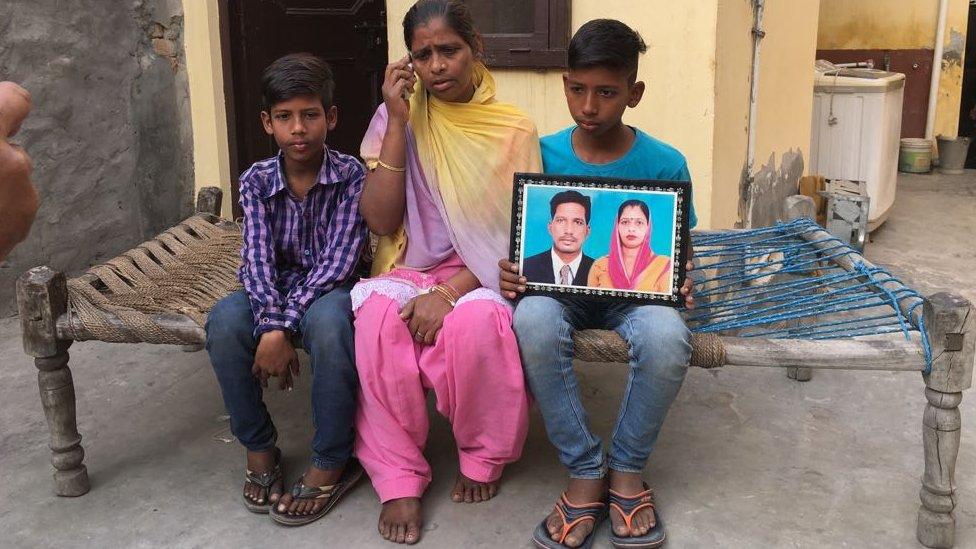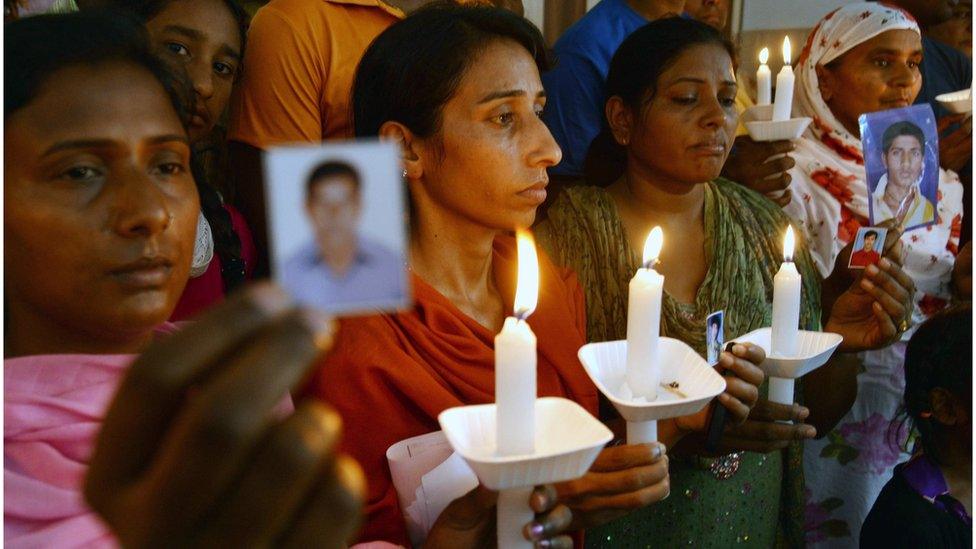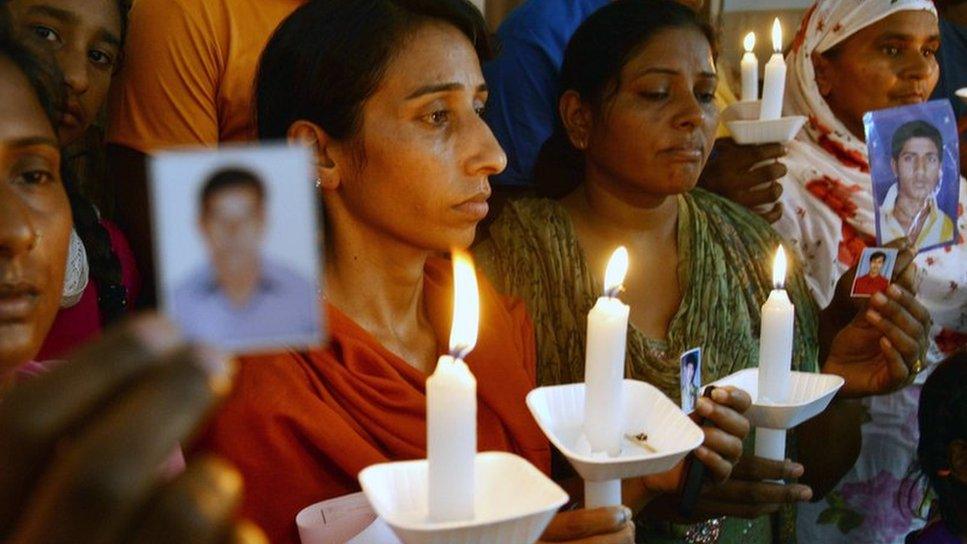Families of IS India victims 'learned of deaths on television'
- Published

Families say the government misled them
Families of 39 Indians who were killed by the Islamic State group in Iraq say they only found out about their deaths when they were announced on television.
Foreign minister Sushma Swaraj told parliament on Tuesday that DNA tests proved the 39 men, who were kidnapped by IS in Mosul in 2014, had died.
Opposition parties say the government must apologise.
Families of victims say the government always said they were alive and efforts were being made to bring them back.
Thirty-one of those killed were from the northern state of Punjab.
"The government misled us, we used to ask them time and time again if my brother was alive and they kept saying yes," Gurpinder Kaur, the sister of one of the workers, Manjinder Singh, told BBC Punjabi.
She also said she wanted to see the proof that her brother was really dead.
Raj Rani, whose husband Pritpal Sharma was among the victims, also told BBC Punjabi she had only found out about his death from news on television and was in shock because she had been led to believe that he was still alive.
"They assured us over and over again that everything was all right - that they were alive and that the government was searching for them," she said.
Ms Swaraj defended her decision to make the announcement public before the families were informed as she said she was "duty-bound to tell parliament first".
Prime Minister Narendra Modi also tweeted later, saying the government had "left no stone unturned" in its efforts to find the men.
Allow X content?
This article contains content provided by X. We ask for your permission before anything is loaded, as they may be using cookies and other technologies. You may want to read X’s cookie policy, external and privacy policy, external before accepting. To view this content choose ‘accept and continue’.
Despite this, however, many people have taken to social media to express their unhappiness with the way the situation has been handled, criticising the government for giving the families "false hope".
Allow X content?
This article contains content provided by X. We ask for your permission before anything is loaded, as they may be using cookies and other technologies. You may want to read X’s cookie policy, external and privacy policy, external before accepting. To view this content choose ‘accept and continue’.
Allow X content?
This article contains content provided by X. We ask for your permission before anything is loaded, as they may be using cookies and other technologies. You may want to read X’s cookie policy, external and privacy policy, external before accepting. To view this content choose ‘accept and continue’.
Allow X content?
This article contains content provided by X. We ask for your permission before anything is loaded, as they may be using cookies and other technologies. You may want to read X’s cookie policy, external and privacy policy, external before accepting. To view this content choose ‘accept and continue’.

'Poverty forced him to go to Iraq'
Arvind Chhabra, BBC Punjabi

The workers were kidnapped in 2014
"It was dangerous to be in Iraq but poverty at home was killing the family as well," says Manjit Kaur, 47, whose husband, Davinder Singh, was among those killed.
When Mr Singh got an opportunity to go to Iraq in 2011, his family was concerned about the ongoing war. But he convinced them that he would be fine because the unrest was far from Mosul, where he would be working.
After Mr Singh went missing in 2014, his son, now seven, often asked his mother about his father.
"We kept telling him he is abroad and would return with a bicycle for him," said Mr Kaur. "But now, he'll never come home."
Ms Kaur said she survived on hope for the last four years as she had received no news of her husband - until a few months ago, when the government asked for DNA samples.
"We were not given a reason but people in the village thought that perhaps Davinder is unwell - and that is why they are asking for his DNA," Ms Kaur says.
She says she first heard about her husband's death from villagers who had seen it on television.
"I rushed to my mother's home and I was shocked to know that he had died."

- Published20 March 2018
